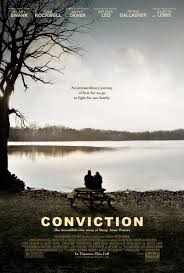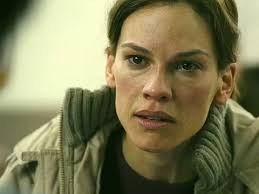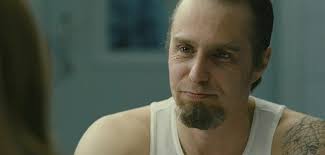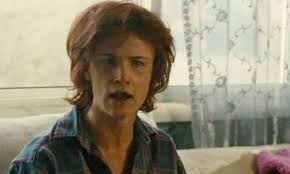Hilary Swank is an actress that has always baffled me. She's a fine actress, don't get me wrong, but her performances are never as strong as people seem to make them out to be. Granted, I have yet to see Million Dollar Baby and Boys Don't Cry, both of which she won Oscars for. But from what I have seen, she doesn't necessarily create a character: she's a collection of emotions and reactions tied together through something ostensible.




That's never more evident than in Conviction, a film that functions as a middle-grade melodrama that was chosen to go to theaters rather than Lifetime, where it would still seem too contrived and disjointed to really work. Swank plays Betty Anne Waters, a "white trash" New England girl who's brother (Sam Rockwell) is thrown in jail for the brutal murder of a local woman. Betty, however, knows that Kenny is innocent, and goes to college to get a law degree so that she can fight to prove his innocence. This all boils down to DNA: Betty is determined, after years of work, to find the blood evidence from the case and prove that, while the killer had the same blood type as Kenny, the blood is not Kenny's, which would therefore exonerate him. Melissa Leo also stars as the potentially-dirty cop that arrested Kenny, Minnie Driver plays fellow lawyer/best friend to Betty, and Juliette Lewis shows up as Kenny's ex that testifies against him.
Swank
Swank's ostensible ties here are her "conviction" that Kenny is innocent (the title is a double entendre, see?) and her iffy Bah-stan accent. She's decent in the film, but that's not really the problem here. The film's biggest issue is that it's an absolute mess: directed by Tony Goldwyn from a script by Pamela Grey, the film finds flashbacks abruptly coming in without any set-up, and in general the whole thing tends to jump through time at a frantic pace with little cognitive flow. Its almost as if Goldwyn decided to give us all the highlights of the case, rather than build any character-based drama or development. From beginning to end, Betty Ann only has one goal: free her brother. A better movie would've taken more time to investigate the ramifications this had on her personal life, but Goldwyn chooses to gloss over them, saying, "Okay, so there were consequences. But that's not important. What is important is that her brother should be free!" Goldwyn's direction, as well as the screenplay, lack any subtlety, hammering home the big points to make sure no one in the audience misses them. There's also several subplots that suddenly arise throughout the film, only to be dropped just as suddenly.
Rockwell
The rest of the cast is given little to do, save for two. Rockwell is better than the movie deserves, and he deserves better than this movie. Though I'd hardly call it the best performance of the year (or even of his career - for a superior Rockwell performance, go check out Moon), he'll still likely reap an Oscar nomination for it, since he gets plenty of showy scenes in which he can ooze actorly charisma. And late in the film, Lewis doesn't just steal her scene, she just about steals the whole movie with a fabulous performance as a decidedly un-fabulous woman. I won't spoil just in case you actually want to see this, but she'll almost make the price of admission worth it.
Lewis
It should be noted that this film is based on a true story. And that story is indeed incredible. However, Conviction takes all the drama out of it, leaving us with a rote, boring film that doesn't really know how to get from point A to point B, other than repeatedly beat the audience over the head with Swank's determined quest. It could have been so much more interesting.
PS As much as I disliked this film, damned if I didn't cry toward the end. That was one moment the film definitely hit right.
Comments